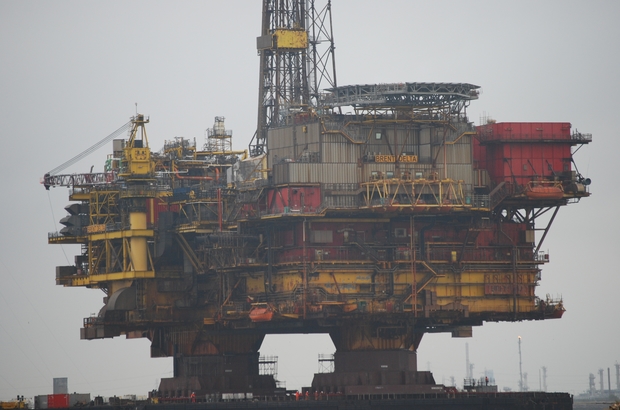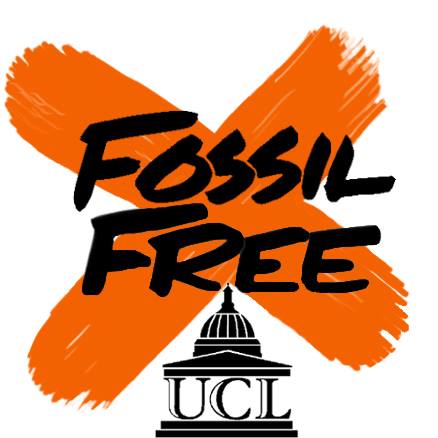BRONAGH SHERIDAN states the importance of the UCL Fossil Free movement.
The world we live in is finite, yet our society compels us to behave as if it were not. In an open letter to The Guardian last week, Extinction Rebellion announced that now is the time ‘we must rebel to defend life itself’. It is time that we listen to what the environment is telling us and speak up about the real and serious problems we are going to encounter in our lifetime. It is time that we engage in the truth.
Reading This Changes Everything by Naomi Klein affirmed my own worldview on the mistreatment of our planet, and what strategies we must immediately adopt to combat climate change. One of Klein’s key arguments is how environmental matters are intrinsically global. Worldwide, the effects of climate change have been devastating. Only last week Typhoon Yutu devastated the Philippines, killing fifteen people. Its severity is symptomatic of the rising intensity of Asian typhoons, all as a result of climate change.
It tends to be those in the poorest regions of the world who are are worst affected by climate change, yet they are the ones who have historically contributed the least to the changing climate. The environmental movement is therefore a call for social justice.
Just like other social catastrophes, climate change is also a symptom of our own system. And just like with all major societal issues, it is something that is often side-lined by those in positions of power. They offer minimal solutions, or deflect the issue altogether. Efforts to resist environmentally friendly initiatives stem from the greed of human industrial development, which systemically ignores the ‘inconvenient truth’ in order to function.
Yet there are glimmers of hope. Large-scale movements and organisations, such as Greenpeace, are striving to stop the negative effects of climate change across the globe. Attempts at international environmental governance, such as the Paris Agreement, have also been made. These demonstrate an acceptance that climate change is a worldwide issue and needs to be tackled as such. It is our responsibility, as citizens of a global community, to bring this conversation to the fore in our local arenas.
We need to recognise that this inconvenient truth is closer to home than feels comfortable. But it’s often hard to link these stark environmental issues with our own lives – something that cognitive dissonance plays a large role in. Of course we care about things, but it’s difficult to really care about the wildfires in Portugal and California, oil spills in North America, or threats to marine bio-diversity in Australia, as these don’t pose a direct threat to our everyday existence.
Communication is what enables social systems (in the expansive Luhmanian sense) to grow. We need to now speak up for the environment, and bring issues facing our planet to the forefront of discussion before they begin to be at the forefront of our lives as an imminent existential threat. It can be as simple as engaging in a discussion with a friend or sharing related articles on social media. Of course, this is not enough to save the planet, but it is part of the collective action that needs to take place through all levels of society.
At UCL, we have a responsibility to make sure that the directors of our institution are being held to account for their negative impact on climate change. This centres around where UCL decides to put their investments. Despite their best efforts to obscure exact details of their investment portfolio, we know that UCL are currently investing at least 1 million pounds in Shell and definitely has ties with other fossil fuel companies such as BP.

It’s important that we first expand our own understanding, and then mobilise others to do so as well. We have a collective responsibility to self-educate on the truths behind the phenomena. One recent problem to emerge is the fact that fracking has begun in the UK for the first time since 2011, in spite of its unpopularity. It has recently hit the headlines that three anti-fracking activists have been given the first prison sentences for any environmental protesters in the UK since 1932. What this shows is that the state is choosing not to listen to the worries of its citizens. Instead it is opting to punish those who are speaking up.
Historically, environmental agendas have been determined by powerful state policies and initiatives. Eco-friendly policies are generally only debated when they serve political or economic agendas. The recent election of the right-wing Brazilian president, Jair M. Bolsonaro, is alarming for many reasons. His plans to follow in the footsteps of Trump’s regime by pulling out of the 2015 Paris Agreement, coupled with his campaign pledges to “rollback protections of the rainforest” is worrying for the fate of our planet. Deforestation currently produces around 10% of all greenhouse gas emissions. Much of this takes place within Brazilian borders, as around 60% of the Amazon lies within its territory. As well as the destruction of nearly one fifth of Brazil’s ecosystem since the 1970s, deforestation contributes to rising global temperatures. Recent years have seen record highs, with seventeen of the eighteen hottest years taking place since 2001.
The situation is far from good. Politically speaking, loud anti-environmental sentiment is often spearheaded by representatives of primary contributors of environmental destruction, such as the USA. Indeed, Donald Trump is one of the biggest offenders. He dismissed climate change as nothing more than a ‘hoax’ back in 2014, and recently questioned the credibility of the IPCC reports findings. Distressingly, he is the president of the country that is responsible for nearly a third of the excess Co2 (that which is causing our planet to heat up). Yet the resulting political dissatisfaction at this terrifying rhetoric has encouraged others to speak up for the environment where the governments will not. In turn, this is reshaping the way we approach environmental issues. It’s not just up to the policy makers; it’s up to us too.
Fossil Free UCL has been engaged in the conversation about climate change within the microcosm of UCL. We have raised awareness through writing open letters to the provost, created petitions and other forms of direct activism. We have brought about systematic changes – including the reduction of investments in fossil fuel. This shows that the authorities will respond to the student body when it speaks out.
But there is still so much to be done to ensure that UCL practices what it preaches. We need to ensure that the university’s investment portfolio reflects green initiatives by questioning their integrity. While the cafes can start charging for not having a reusable cup (which is great!), this can sometimes cover up the deeper significant damage that UCL is doing as an institution. We need to continue to engage management to ensure the complete emancipation of our institution from dirty energy.
We need to be alarmed. We need to feel angry. We must raise our voices and make those in power listen. We need to make sure that those in power at our university are not investing against our interests, but investing with them at heart.
To get involved, find Fossil Free UCL on Facebook. We hold weekly meetings, and they are open to anybody that is motivated by the desire to ensure our university is moving towards more ethically guided investments, and who at large are interested in raising awareness of environmental issues. We are also holding a ‘die-in’ on Friday 16th November to protest against UCL’s investment.
Fea






